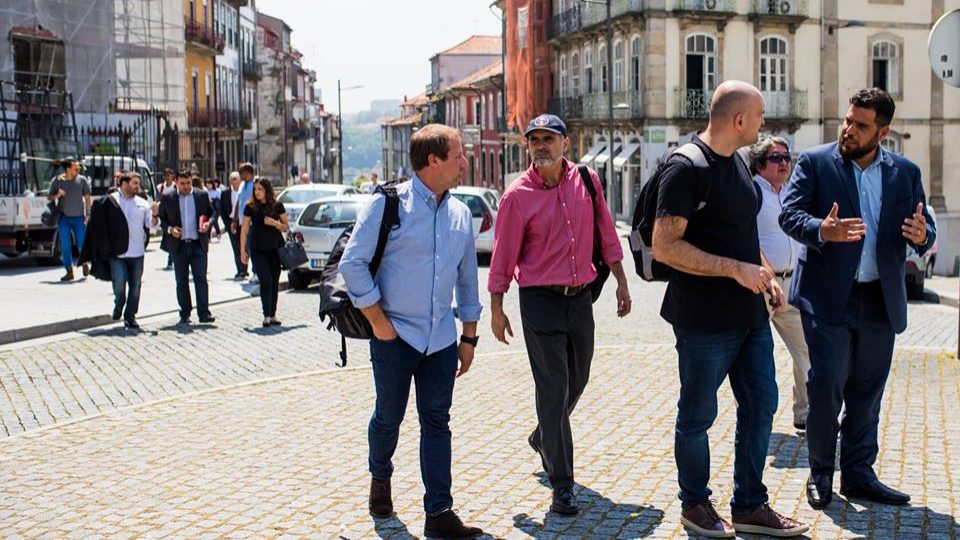What are parliamentarians debating on the eve of OE2019? Here are seven priority issues for decision-makers
Being debated at the Parliament on the eve of the State Budget 2019 negotiations are issues such as the NHS reform and real estate speculation tax. Here are seven major priorities for decision-makers.
António Costa, the Portuguese PM, is now back to the country after attending the UNGA. As he gets ready to enter the hemicycle this Wednesday afternoon, the PM must be prepared to answer all MP’s queries regarding the long-awaited delivery of the State Budget 2019.
This is the first fortnightly debate after the vacation period which shuts down the Parliament, and we are 19 days away from the delivery of the final version of the OE2019. As such, the bi-weekly debate will focus on the budgetary issues which have been dominating the discussions between MP’s from all sides of the political landscape.
Legislation on fundamental health provision and Infarmed
The National Health System (SNS) has been under media scrutiny, for the worst reasons, as 51 of Gaia’s Central Hospital staff and the clinical director of the service presented their resignation last week. Bloco de Esquerda reacted and claimed that it will take the negotiations regarding the fundamental health provision to the table this Wednesday’s fortnight debate. They want the SNS to be completely differentiated from private services, working on strengthening the national health system for everyone in order to break the cycle of sickness and poverty for families.
The President of the Portuguese Association of Hospital Managers, Alexandre Lourenço, said in June at a health Convention in Lisbon that in 2010, the SNS had the lowest investment recorded in the last ten years in the public health system, calling attention for the “dilemma brought up by the lack of financing in public health”.
The Government announced €300m will be invested and the Social-Democrats (PSD) already delivered to the executive governing body of the country a structural reform proposal for the public health system. The Government has also taken a step back regarding Infarmed’s relocation to Porto, in a time when decentralization is a hot topic in the country.
Robles tax
It was one of the most controversial cases anticipating the OE2019 negotiations. BE had to put forward that the party had influenced the creation of a new tax to charge on those practising real estate speculation. António Costa and Carlos César announced that they would not back up Catarina Martis with the legislation, but the party kept its idea standing. This divergence showed the fragility of the political partnership between BE and PS. However, it allowed BE to push PS and CDS to the right wing.
Tax on the electricity bills: VAT reduction
One of the other measures coincides with the unreasonably high prices on energy bills: parties on the left of the government want the VAT to be reduced severely on electricity and gas bills, which have increased to 23% from 6% in October 2011. Even though the “Geringonça” (coalition government) tried to show this would go smoothly, the Portuguese newspaper Jornal de Negócios gave the public some mixed signals when it announced last week, after confirmation from a government source, that the cost (€500m) of such a tax reform “is not sustainable”.
To ECO, the leader of PCP’s parliamentary wing, João Oliveira, had announced that the cost of this shift would amount to a cost of €170m to the government treasury, while Expresso, another Portuguese newspaper, talked about the figure of €600m.
There is also a debate regarding a new tax to fall on renewable energy producers, a measure that the leftists had already presented last year but which fell behind after the Socialists opted it out.
Optimism regarding the deficit and some shadows on the economy:
In April, Centeno upset the left parties by stating the deficit goal wouldn’t be 1.1% but rather 0.7%. This year, the Portuguese Finance Minister has shown signs that he will not repeat the same magic trick in 2019. His team’s deficit target for 2018 stands at 0.7% and the target for 2019 shall be the same as announced in April (0.2% of GDP), regardless of how optimistic everyone has been about the country’s budgetary performance.
The Public Finances Council, lead by Teodora Cardoso, predicts that the deficit will stand at 0.5% of GDP by the end of the year, and estimates it to reach 0.2% next year.
The budgetary performance might make the finances minister smile from ear to ear, but the same can’t be said for the economic performance, as most predictions point a slowing of the rate of growth of the economy in comparison to 2018, which might have a direct effect in the government’s GDP estimations for the next fiscal year.
Teachers quarrel: career progression and a strike coming up
It has been an ongoing issue for one year now, as it started being discussed during 2018’s state budget negotiations. However, no solution has yet been reached between the government and FENPROF (professors’ syndicate). Government employees had their career progression unblocked allowing 45 thousand professors to go up in their career. However, the accumulated time worked was lost with the shift, and the government and syndicates can’t reach an agreement. Costa promises to surprise teachers during the OE2019 negotiations, but the latter have already planned a strike which will be held between the 1st and 4th of October, and another one for the 26th of October.
The new state attorney general
The substitution to a new state attorney general for the Public Ministry was a hot topic last week, spiking division regarding the re-appointment of Joana Marques Vidal (JMV) for the role. PSD wanted the re-appointment of Joana Marques Vidal, and the leader was certain that the choice of the opposition, PS, to elect Lucília Gago, was doubtful, and not the best option, as the debate should have taken the government, in his opinion, to the point of supporting a new judiciary model in the Public Defence Ministry. For Rio, “if there is no difference between the two of them, being so similar in their style, then JMV should have stayed.”
Relationship with Angola is back on track
The official visit of the Portuguese government to Angola was part of a diplomatic strategy that aimed at making the relationship between both countries return to normal. It had been seven years since the last official visit from an official representative of the Portuguese government to the country, and Costa hopes this is the start of a new tradition, that shall happen at least once every year.
The trip could finally happen after a high-profile Angolan politician, the former vice president Manuel Vicente, was released from the Portuguese judicial system, after having been indicted in a corruption case in Portugal. The process was transferred to the Angolan justice system, a while before the announcement of the new attorney general. While in Luanda, our country’s officials signed deals to ensure that Portuguese companies can recover the credit that they have stuck in Angola.




